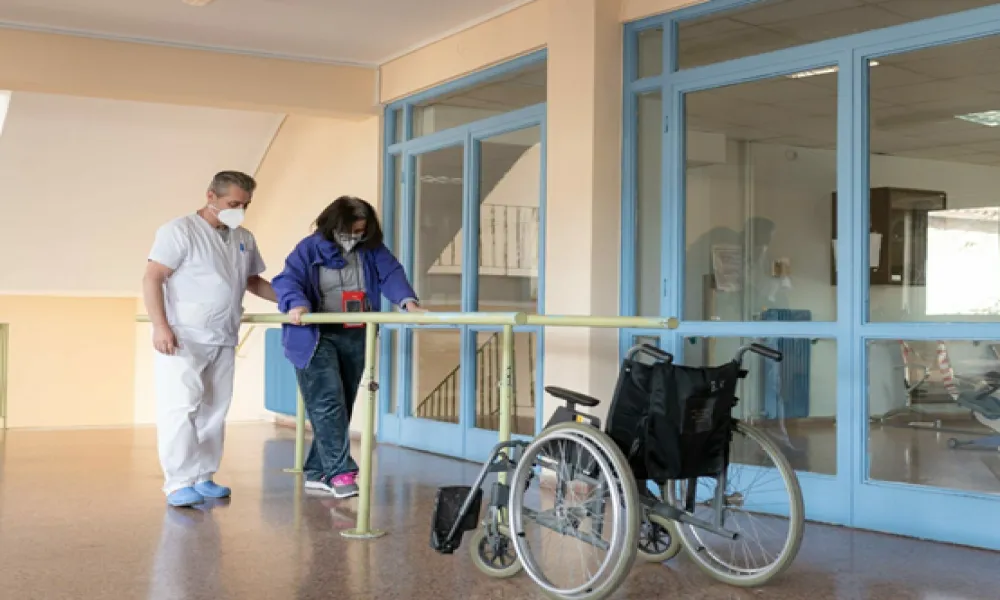A coalition of civil society organisations - the Cyprus Confederation of Disabled People’s Organisations (CYSOA), the Federation of Patients’ Associations of Cyprus (OSAK) and the Third Age Observatory - has launched a fierce attack on Parliament, accusing members of the House Health Committee of advancing a Rehabilitation Centres Billthat fails to solve the sector’s deep-rooted problems and instead entrenches inequality.
The three organisations say they refuse to accept legislation that “will once again leave patients unprotected”. The absence of a legal framework, they note, has for years deprived hundreds of patients of access to adequate rehabilitation services.
Within the General Health System (GeSY), such services remain limited, with only a few hospitals contracted to provide rehabilitation care. The shortage of beds has forced many patients to seek treatment in the private sector, paying thousands of euros per month out of pocket.
According to the groups, the bill expected to reach the House plenary in November not only fails to address this inequity but also “sustains distortions, strengthens vested interests and sidelines the very people it is meant to protect.”
The final round of consultations on MPs’ proposed amendments takes place today before the text goes to the plenary. The three organisations warn that unless major revisions are made, the result will be “a law that serves providers, not patients.”
Business interests over patients
The organisations argue that Parliament is attempting to legislate on medical practice without scientific input. They insist that the definition of rehabilitation services and the scope of activities for such centres must fall under the Ministry of Health, in collaboration with professional bodies such as the Cyprus Medical Association (PIS).
“It is incomprehensible that a non-scientific body should have authority over medical procedures,” said Themis Anthopoulou, president of CYSOA, in comments to Politis.
She added that the stance of the House “raises deep concern.”
“We represent those directly affected by this law. We live these problems every day and demand legislation that resolves them. Yet some MPs insist on passing a law that does not serve patients. Ultimately, who is this law meant to satisfy?”
Anthopoulou criticised the proposed categorisation of rehabilitation centres into Type A and Type B, describing it as “unrelated to service quality” and driven by “other interests.”
“When hospitals are exempt from evaluation or transitional provisions, who ensures the quality of their services? Parliament’s priority should be protecting patients, older adults, and people with disabilities - not business interests,” she said.
'Families are selling their property'
“The House has a duty to pass a law in the public interest, for citizens who depend on rehabilitation services,” said Dimos Antoniou, head of the Third Age Observatory.
“Today, there are families selling property or taking loans just to afford the right therapies for their loved ones. That should be what concerns Parliament and the Ministry of Health.”
Antoniou also criticised the transitional provisions, noting that while residential care homes will be required to meet strict new building standards, private hospitals are exempt. “This creates a two-tier system - a few with privileges, and many facing barriers,” he said.
Flawed framework
From OSAK’s side, president Charalambos Papadopoulos told Politis that although some of the proposed amendments move in the right direction, “they do not correct the underlying flaws in the framework.”
Maintaining the centre categorisation, he said, “preserves inequality and delays the development of the rehabilitation sector - at a time when patients need more options and equal access to quality care.”
The three organisations urge Parliament to reconsider its position and withdraw the problematic provisions before the bill reaches a final vote.
“Before passing a law that will further burden those in need of rehabilitation, MPs must finally listen to those who know best - the patients, the elderly, and persons with disabilities,” they stressed. Otherwise, they warned, “rehabilitation in Cyprus will remain a privilege for the few.”
